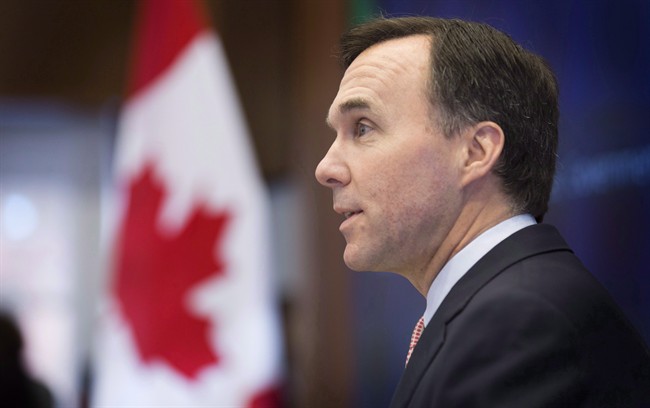OTTAWA – Key leaders from the Assembly of First Nations are to meet Finance Minister Bill Morneau today as pressure mounts on the federal government to put promises into action in its first budget.

The meeting comes as the minister continues his consultations ahead of the release of the fiscal blueprint, expected in March.
It also follows a landmark ruling this week from the Canadian Human Rights Tribunal, which highlighted the federal government’s systemic underfunding of First Nations child welfare services.
Following the release of the tribunal’s legally binding decision on Tuesday, Indigenous Affairs Minister Carolyn Bennett did not say how much money will be needed to address the issue – she only cited the need for “significant” investments.
First Nations advocate Cindy Blackstock estimated it will take at least a $200-million boost in this year’s budget alone to start the process.
Blackstock, the social worker at the heart of the nine-year battle that led to the ruling, said she will be watching to see if the government comes through on its commitments. Children cannot afford to wait any longer, she said.
Isadore Day, the Ontario regional chief for the AFN, is among the leaders who will meet Morneau.
“This is really about First Nations securing their rightful place in this country,” he said.
“I think there are some signs of hope with respect to the discussion, but talk is cheap. We need action.”
- Budget 2024 failed to spark ‘political reboot’ for Liberals, polling suggests
- Train goes up in flames while rolling through London, Ont. Here’s what we know
- Peel police chief met Sri Lankan officer a court says ‘participated’ in torture
- Wrong remains sent to ‘exhausted’ Canadian family after death on Cuba vacation
Prime Minister Justin Trudeau has vowed that reforming the relationship with Aboriginal Peoples is a top priority – a sentiment reflected in mandate letters sent to each cabinet minister.
But the prime minister faces a financial crunch as he attempts to follow through on a number of ambitious, and costly, election promises.
During the campaign, the Liberals promised to run annual deficits of no more than $10-billion with a plan to return the books to balance in 2019-2020.
Since coming to office, the government has acknowledged it faces hurdles in its economic outlook, especially with sliding oil prices.
It must also find a way to pay for pledges that have not been fully costed out, such as ending all boil-water advisories on First Nations reserves within five years and lifting the two-per-cent cap on federal funding for First Nations communities.
Charlie Angus, the NDP’s indigenous affairs critic, said he doesn’t have much sympathy for the Liberals as they attempt to make good on their word.
“(Trudeau) was emphatic in the campaign that these promises would be delivered on and there was no accounting for it in their electoral platform,” Angus said.
“They are going to have to find the money and, quite frankly, First Nations children have waited too long … They made these commitments. They made very, very clear and bold statements. It’s time for bold action.”
Earlier this month, Morneau characterized Liberal commitments to helping aboriginals as “critically important.”
“You can be sure that that’ll be high priority in our coming budget,” he said.
Aaron Wudrick, the federal director of the Canadian Taxpayers Federation, said metrics need to be laid out to measure the success of government programs.
“We are not opposed to the idea that there are going to be specific programs and initiatives that require more money,” he said.
“It doesn’t matter what the issue is, I think taxpayers need confidence that the government is not simply throwing money at a problem to fix it. If there’s a legitimate reason for more money and the government can demonstrate that and then track spending to ensure that there is value for money, whether that is aboriginal issues or not, I think that that is reasonable.”


Comments